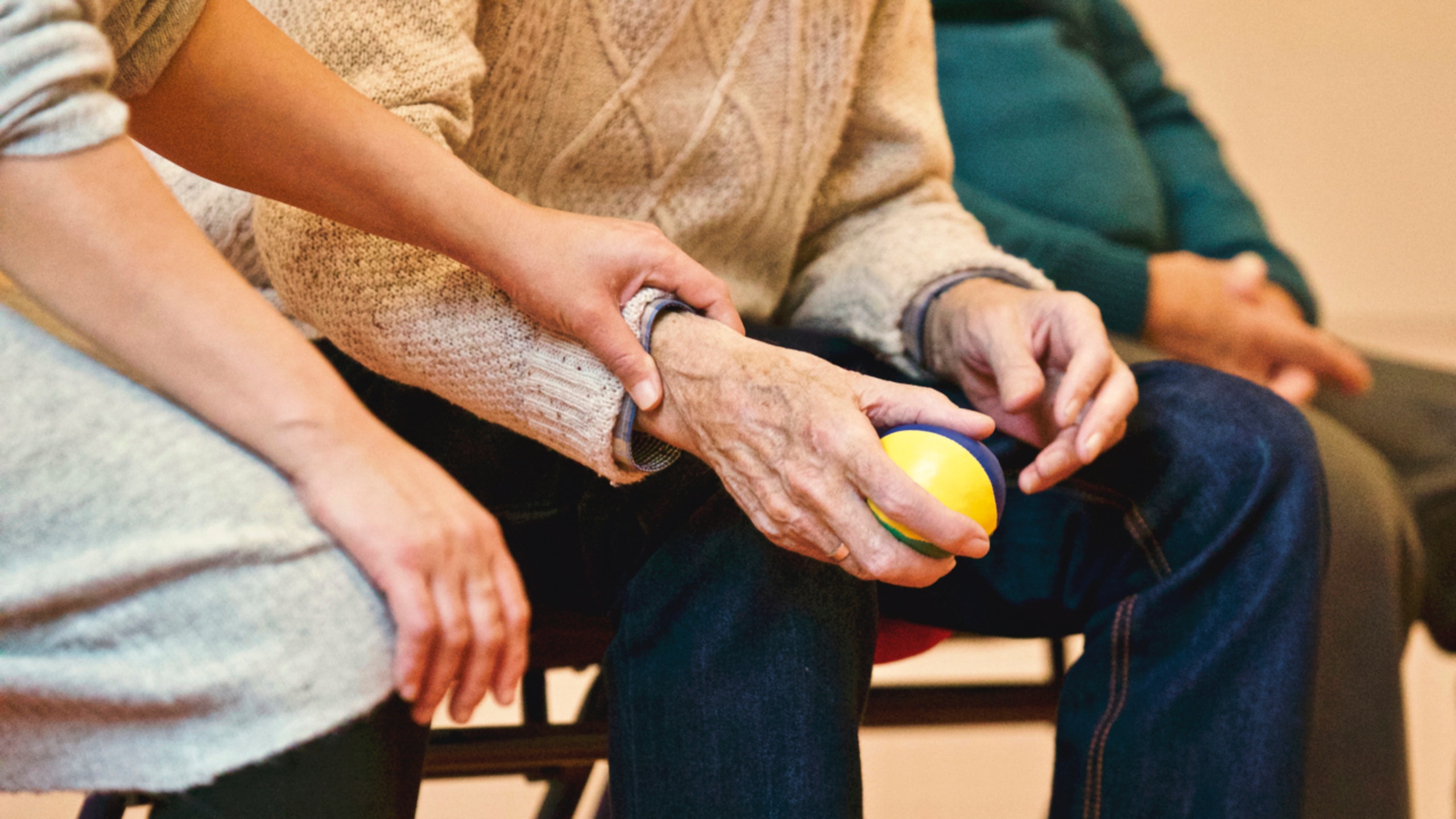
Music is understood to be a great way to break through to dementia patients. Here are five reasons why researchers believe music boosts brain activity in Alzheimer’s sufferers.
The magic of music on the memory is amazing
Fleur-Lise Monastesse, at Cluny’s Hospital, Hospice and assisted living retirement home, France, shows us that by using music, singing and touch, faces light up, hands stretch out, and tender interactions take place. Music has been known to positively affect those with dementia and Alzheimer’s for some time, but exactly how it has an effect on these patients has not always been clear until fairly recently.
How Music Helps Dementia Patients Recall Memories and Emotions
Music is known to be a great way to break through to dementia patients, but do you know why?
A study in 2014 showed that dementia and Alzheimer’s patients can recall memories and emotions, and have enhanced mental performance after singing classic hits and show tunes from movies and musicals — a breakthrough in understanding how music affects those with dementia and Alzheimer’s.
Researchers determined the effect music has on dementia patients, by leading half of the participants through selected songs while the other half listened to the music being played.
After the musical treatment, all participants took cognitive ability and life satisfaction tests. which showed how participants scored significantly better when being lead through songs, rather than only listening.
Below are 5 reasons why researchers believe that music boosts brain activity:
Source: Alzheimers.net

1. Music evokes emotions that bring memories.
Music can evoke emotion in even the most advanced of Alzheimer’s patients. Neurologist Oliver Sacks says that, “Music evokes emotion, and emotion can bring with it memory… it brings back the feeling of life when nothing else can.” By pairing music with every day activities, patients can develop a rhythm that helps them to the recall the memory of that activity, improving cognitive ability over time.

2. Musical aptitude and appreciation are two of the last remaining abilities in dementia patients.
Linda Maguire, lead author on the study wrote, “Musical aptitude and music appreciation are two of the last remaining abilities in patients with Alzheimer’s.” Because these two abilities remain long after other abilities have passed, music is an excellent way to reach beyond the disease and reach the person.

3. Music can bring emotional and physical closeness
In the later stages of dementia, patients often lose the ability to share emotions with caregivers. Through music, as long as they are ambulatory, they can often dance. Dancing can lead to hugs, kisses and touching which brings security and memories.

4. Singing is engaging
The singing sessions in the study engaged more than just the brain and the area related to singing. As singing activated the left side of the brain, listening to music sparked activity in the right and watching the class activated visual areas of the brain. With so much of the brain being stimulated the patients were exercising more mind power than usual.

5. Music can shift mood, manage stress and stimulate positive interactions.
The Alzheimer’s Foundation of America has an entire web page dedicated to music therapy in Alzheimer’s patients. They say that, “When used appropriately, music can shift mood, manage stress-induced agitation, stimulate positive interactions, facilitate cognitive function and coordinate motor movements.” This is because music requires little to no mental processing, so singing music does not require the cognitive function that is not present in most dementia patients.
Which Musicals or Movies Work Best?
Getting a loved one with dementia or Alzheimer’s to engage with music and movies may depend on which genre they enjoy the most. But, the suggestions below can help you get started:
- The Sound of Music
- When You Wish Upon a Star (from Pinocchio)
- Somewhere Over the Rainbow (from The Wizard of Oz)
Dr. Jane Flinn, a researcher from George Mason University says that the study should encourage caregivers.
“The message is: do not give up on these men and women. You want to be performing things that engage them, and singing is cheap, effortless and engaging.”
Related Resources:
- Music and Memory Programs Decrease Use of Medication
- Using Music to Enhance the Quality of Life of People with Alzheimer’s
- Using the Spark Memories Radio App for Dementia
- Music Therapy For Dementia: Awakening Memories
Do you or a loved one have any experience with music therapy for dementia? Share your story in the comments below.
Source: Alzheimers.net
Fleur-Lise Monastesse Contact details.
Fleur-Lise Monastesse
Cluny’s Hospital, Hospice and assisted living retirement home, France
fleurlise.monastesse@yahoo.fr
Caregiver’s Guide to Understanding Dementia Behaviors
Caring for a loved one with dementia poses many challenges for families and caregivers. People with dementia from conditions such as Alzheimer’s and related diseases have a progressive biological brain disorder that makes it more and more difficult for them to remember things, think clearly, communicate with others, and take care of themselves. In addition, dementia can cause mood swings and even change a person’s personality and behavior. This fact sheet provides some practical strategies for dealing with the troubling behavior problems and communication difficulties often encountered when caring for a person with dementia.